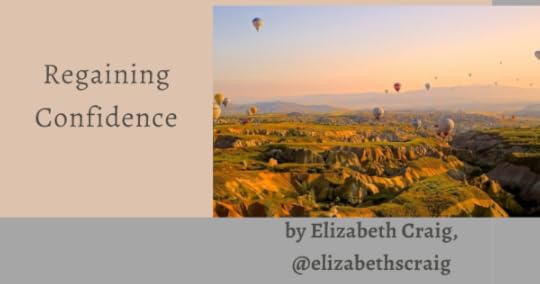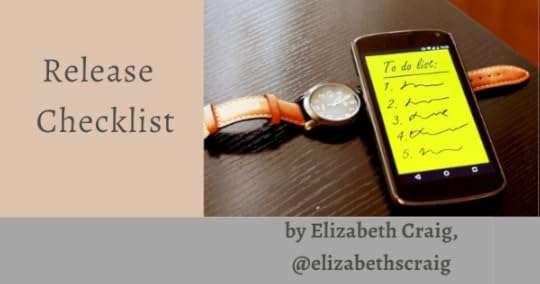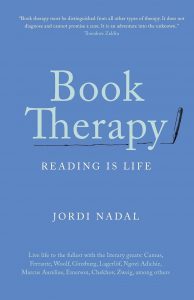Riley Adams's Blog, page 39
August 22, 2021
Regaining Confidence
by Elizabeth S. Craig, @elizabethscraig
I think all of us have a crisis of confidence at some point when we're writing.
Sometimes it's because the writing that day has been slow. Maybe you're having a tough time knowing how to approach an important scene. Or you've finished the important scene but it seems a little flat.
Maybe you've just finished reading a fantastic book or article and feel your writing really suffers in comparison.
Maybe it's because you've come across some negative customer reviews of your books when you're already feeling vulnerable.
It could be because your beta readers or critique group had some negative feedback on a recent chapter or full manuscript and you're facing a lot of revision or aren't sure which advice to follow.
The important thing is not to let the crisis of confidence keep you from moving forward with your story. Here are some ideas for helping to get your mojo back:
Tips for Regaining Confidence in Your WritingKeep any positive reader emails or reviews in a special folder. When you do get some good feedback, be sure to copy-paste it into a folder on your computer that you can review whenever you're feeling a little low. Those can help remind you that your writing has resonated with others.
Keep samples of your writing where your voice and story were really strong. This can also help during those times when you feel like you're not getting a character's voice right or you're stumbling through a passage.
Consider re-reading your story. This is sort of the nuclear option for me because ordinarily re-reading my first draft really messes me up and puts me squarely in edit mode. But it can be a great way to talk yourself off the ledge and realize that your book does have redeeming qualities, just when you feel ready to throw in the towel.
Resist Shiny New Ideas. Sometimes, when our current project isn't going well, a new story concept will occur to us…one that seems a lot easier to write or more of a viable idea than what we're currently slogging through. Go ahead and just file your concept in another file and get back to your story.
Remember you can fix your book later. The first draft is not a completed book. To keep moving forward, remind yourself that you can make the story stronger as soon as you finish your first draft.
There's a whole group dedicated to writers who struggle with their confidence or feel insecure about their writing. Check out Alex J. Cavanaugh's Insecure Writers' Support Group for resources and support.
Do you struggle with crises of confidence as a writer? How do you work through it?
Tips for Regaining Confidence as a Writer:
Click To Tweet
Photo on VisualHunt
The post Regaining Confidence appeared first on Elizabeth Spann Craig.
August 21, 2021
Twitterific Writing Links
by Elizabeth S. Craig, @elizabethscraig
Twitterific writing links are fed into the Writer’s Knowledge Base search engine (developed by writer and software engineer Mike Fleming) which has over 61,000 free articles on writing related topics. It’s the search engine for writers. While you're there, check out the Writer's Digest award-winning Hiveword novel organizer.
Have you visited the WKB lately? Check out the new redesign where you can browse by category, and sign up for free writing articles, on topics you choose, delivered to your email inbox! Sign up for the Hiveword newsletter here.
Business / MiscellaneousFreelancing: Mindset Shifts: 4 Myths That Will Keep You Stuck: @ashleygainerSample Edit or Editing Test, Which One Is Best? @KPickett_EditorLet's Focus on Building Writing Careers: @FrugalBookPromoHow to Choose and Maximize the Date You Launch a Book: @BookgalSelf-publishing News: INKR, Kobo Plus, and the Rise of Writing Apps: @agnieszkasshoes @IndieAuthorALLIFreelancing: How to Brainstorm Ideas for Writing: @RobynRosteWhen Should Authors Create an LLC or S Corp? Webinar Hosted 8-19 by @AuthorsGuild : The Ultimate Guide to Pre-orders for Indie Authors: @IndieAuthorALLISelf-publishing News: Indie Trailblazer LJ Ross Celebrates 7 Million Sales: @agnieszkasshoes @IndieAuthorALLITransitioning From An In-Person Business To Online Multiple Streams Of Income: @guy_windsor @thecreativepennCreating a Style Guide Template that Works: @BryanJCollinsMonopolize Your Indie Author Real Estate: @BookgalConferences and Events / MiscellaneousA Hybrid Plan of Workshops and Events: September’s ‘Noirwich’ Festival in England: @Porter_Anderson @pubperspectives @WritersCentreMadrid’s ‘Desperate Literature’ Short Fiction Prize: Paige Cowan-Hall: @Porter_Anderson @pubperspectivesNew Zealand Publishers’ Conference Features Al Qasimi, Evans, Brown: @Porter_Anderson @pubperspectivesGerman Book Prize: ‘Nationwide Blind Date Readings’ With Authors: @Porter_Anderson @pubperspectivesCreativity and Inspiration / First NovelsDear Debut Author – You Are Not a Failure: @marissadecuir @TheIWSGCreativity and Inspiration / InspirationFeed Your Senses for a Bounty of Creativity: @AmbreDLeffler @DIYMFACreativity and Inspiration / Inspiration / Reading as WritersSix Fictional Characters With Whom You Should Never, Ever Go Camping: @jamesdnicoll @tordotcomAn Incomplete Survey of Fictional Knitters: by Zeynab Warsame @believermag11 of the Most Disastrous Vacations in Literature: @carrievmullins @ElectricLitSleuths Without a Home Base in Crime Fiction: @MargotKinbergFive SFF Characters You Should Never, Ever Date: @jamesdnicoll @tordotcomCreativity and Inspiration / Productivity / Writing Quickly4 Keys Reasons Planning a Novel Speeds Up Your Writing Process: @JDEdwinAuthor @write_practiceCreativity and Inspiration / Writing Life“How Writing in a Second Language Taught Me How to be Successful”: by Amelia Cognet @Horror_OasisWriting and Puzzles: @dlfinnauthor @StoryEmpireHemingway's Writing Routine: @AstrohausMake a Summer Plan for Your Writing: @10minnovelist“The Advantages of Failure: What Thoreau Taught Me About Journal Writing”: @DavidGessner @lithubHow do you finish your writing? @pubcoachWhat to Do With Your Feelings as a Creator: @austinkleon7 Clues that Reveal Writing is Part of Your Life’s Purpose: @colleen_m_story @onestop4writers6 Plausible Excuses for Not Finishing Your Novel During the Pandemic: @BillFerris @WriterUnboxedThe Shiny Object Syndrome:: by Radek Pazdera5 Things Never to Say to a Writer: @blondehurst @TheRyanLanzThe Ultimate Guide to Creative Rest for Indie Authors: @IndieAuthorALLIAdvocacy Is Not A Bad Word: @cawest329 @WriterUnboxedYou're Still Exhausted: @annehelenWhere do we go from here? By Dawn FinchHow Can I Judge if a Story Is Bad? by Oren Ashkenazi @mythcreantsCommonplace Books: History and Follow up Tips: by Deborah Lyn StanleyThe Swartzwelder Method: Because Writing Should Be Fun: @helpfulsnowman @LitReactorGenres / FantasyDoes Fantasy Have to be Medieval? @PhilAthansWriting a Fantasy Series: Tips: @TriciaLevensell @thenovelryGenres / Horror4 Tips For Horror Writers From The Genre’s Masters: @HorrorTreeContent Warnings in Horror: @Tabatha_Writes @RainbowReelClubA Satisfying Invasion of Music in Horror Fiction: @jon_obergh @Horror_OasisGenres / MemoirA Memoir Should Be a Conversation, Not a Monologue: @BethKephart @CatapultStoryGenres / MysteryTypecasting in Crime Fiction: @MargotKinbergWhat Do Mystery Writers and Therapists Have in Common? @philippa_east @CrimeReadsHow to Write a Red Herring: @stacitroilo @StoryEmpireGenres / Science FictionWhat Technology Can’t SF Writers Live Without? @Julianne_SF @sfwaGenres / ScreenwritingDoes a horror film have to be scary? Revisiting The Awakening (2011): @IMDBartlettScreenplays Are Stories, Not Formulas: @GoIntoTheStoryThe Coen Brothers, Storytelling, and Fate: @GoIntoTheStoryPromo / Book Reviews1 Writer's Review Envy: @dlwebb @WomenWritersPromo / Miscellaneous7 Tips to Build an Audience for Your Writing: by Bucket SilerPromo / NewslettersGetting Started With a Mailing List: @inkbitspixelsPromo / Social Media TipsUsing TikTok to Sell Books: by Dominika Pindor @onestop4writersPromo / Video9 Tips For Video Marketing Your First Book: by Eliza Sadler @A3writersPublishing / MiscellaneousNotes From a Small London Publisher: @rcharkin @pubperspectives“What I’ve Learned from Six Years in Small Press Publishing”: @EJWenstromPRH Audio Launches Ahab Voiceover Casting Platform: @penguinrandomThe Ultimate Guide to Winning Book Awards: Tips and Tools: @IndieAuthorALLIHachette Book Group Announces Acquisition of Workman Publishing: @Porter_Anderson @pubperspectives @HachetteUS @WorkmanPubNew Podcast Created and Hosted by Literary Agents Offers a Behind-the-Scenes Look at the Business: and https://t.co/aotxM0yPME @SamHiyate @TRFNewsTraditional vs Indie Publishing with Elizabeth Spann Craig: @KristinaAuthor @writingcookbookCambridge’s New Look at Ancient Greek: A 23-Year Project: @Porter_Anderson @pubperspectivesStudying Gender Representation and the Contemporary ISNI Identifier: @Porter_Anderson @pubperspectives @ISNI_IDSummary judgement: a brief history of the book blurb: @jamesriding10 @prospect_ukGinger Clark Literary Hires Translation Rights Manager Nicole Eisenbraun: @Porter_Anderson @ClarkLiterary @pubperspectivesPublishing / News / International PublishingDoire, an Irish Independent Press, Readies Pandemic-Inspired Books: @Porter_Anderson @pubperspectivesGuadalajara Publishers Form Guild; Barcelona's Balmes Honored: @Porter_Anderson @pubperspectivesChina Bestsellers: July Was Driven by Summer’s School Reading Lists: @Porter_Anderson @pubperspectivesChineseALL USA's ‘Crazy Maple Studio' Opens a ‘Gamification Platform': @Porter_Anderson @CMapleStudio @pubperspectivesPEN America Calls for Protection of Writers, Cultural Actors in Afghanistan: @Porter_Anderson @PENamerica @pubperspectivesSharjah Book Authority Opens New ‘You're Into Books' Campaign: @Porter_Anderson @pubperspectives @SharjahBookAuthRights Roundup: Cycles of Oppression and Courage: @Porter_Anderson @pubperspectivesBrazilian Publishers Release Three Rights Catalogues Pre-Frankfurt: @Porter_Anderson @Book_Fair @BPublishers @pubperspectivesPublishing / Options / Self-PublishingSelf-Publishing is a Business: Don’t Treat it Like a Childish Game: @annerallenPublishing / Options / Traditional PublishingSmall Press Publishing Might Solve All Your Problems: by Savannah Cordova @ReedsyHQPublishing / Process / FormattingHow to Write a Book Title Page: @DaveChessonHow to Format a Book with Word: @DaveChessonPublishing / Process / ISBNsHow To Get An ISBN: Quick Guide for Self-Published Authors: @DaveChessonWriting Craft / BeginningsAvoid the Bait-and-Switch Opening: @jamesscottbell @killzoneauthorsCharacter Introductions: Introduction Through Surprise: @GoIntoTheStoryFirst Page Critique: @burke_writer @killzoneauthorsWriting Craft / Characters / AntagonistsQuick Tips for Writing Interesting Villains: by myhoniahakaWriting Craft / Characters / ArcCharacter Arcs: @GriggsWinnie @SKRViLLWriting Craft / Characters / DevelopmentCharacter Type: Loner @GoIntoTheStoryTypes of Flat-Arc Characters: @KiingoCreativeThe Way Of “The One” – For Writers: @ChrisLukeDean @Writers_WriteWriting Craft / DiversityWriting With Color: A Situation with a Black Character Nearly Drowning: @WritingwColorWriting Craft / Lessons from Books and FilmFirst Pages of Scripts for Screenwriters to Learn From: @GoIntoTheStoryPage One: “Toy Story” (1995): @GoIntoTheStoryFive Badly Motivated Villains From Popular Stories: by Oren Ashkenazi @mythcreantsBelieve Care Invest: Nomadland: @CockeyedCaravanPage One: “Finding Nemo” (2003): @GoIntoTheStoryPixar and Visual Storytelling: @GoIntoTheStoryWriting Craft / MiscellaneousWhy You Should Know Who Your Narrator Is Talking To: @Janice_HardyWriting Argument or Revelation Scenes: @LindasclareOn Ghosts and How To Write About Them: by Oliver Fox @Writers_WriteHow to Expand on a Story Idea: @KiingoCreativeRespectfully Depicting a Character Adapting to a Disability: by Fay Onyx @mythcreantsDeep Work vs. Shallow Work: @GoIntoTheStoryWriting Craft / PacingHow to Raise the Stakes: @KiingoCreativeWriting Craft / Pre-Writing / NamingHow to Name Your Characters:: @AuthorSATWriting Craft / Pre-Writing / OutliningA Display Hack for Your Story’s Outline: @jan_ohara @WriterUnboxedTo Plot…Or Not: @MaryGillgannon @RMFWritersWriting Craft / Punctuation and GrammarThan vs. Then: @KrystalNCraiker @ProWritingAid5 reasons to use one-line paragraphs in fiction writing: @LouiseHarnbyWriting Craft / ScenesWhat is the point of the scene? @GoIntoTheStoryWriting Craft / SeriesThe Art of Balancing Multiple Mystery Series: @JAJance @CrimeReadsWriting Craft / Word CraftingWhat is Persuasive Copy? 7 Copywriting Examples: by Barbara Sturm @smartbloggerhqWriting Tools / AppsThe Best Writing Tools to Win NaNoWriMo: by Jenna Plute @NaNoWriMo3 Media Tools for Writers Working Smarter, Not Harder: @khogrefeparnell @EdieMelson
The Top Writing Links From Last Week Are On Twitterific:
Click To Tweet
The post Twitterific Writing Links appeared first on Elizabeth Spann Craig.
August 15, 2021
What I’ve Learned from Six Years in Small Press Publishing
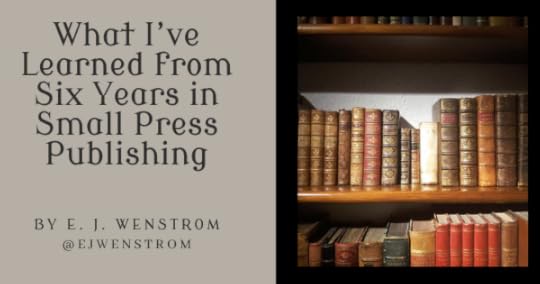
by E. J. Wenstrom, @ejwenstrom
I just released by fifth book, for which I worked with my second small press partner. I’ve learned a lot along the way about what small press has to offer, from its benefits to its limitations to the red flags to look out for.
The right small press can be an incredible way to get your books into readers’ hands! But it’s important to know what you’re looking for in a publisher, take steps to know who you’re getting into business with, and be an active partner in the process.
Here are a few steps authors should take for a great small press experience:
1. Do your homeworkA small press can be an incredible partner, but not all small presses are equal. In fact, they can range wildly from established and esteemed pillars of publishing, to new kids on the block with innovative new approaches, to the downright predatory.
Before signing with any small press, an author must know what they want from a publisher, what kinds of risks they are comfortable with (if any) and whether the publisher’s standards and style align with your own.
Does the publisher have experience in your genre? Are their covers professional? What do their current and past authors have to say about their experiences?
There are myriad resources online flagging bad practices, offering resources for what to ask a small press, and even letting you tap into the collective whisper network such as AbsoluteWrite, QueryTracker and Writer Beware. Use them, and talk to your own network.
If you don’t have an agent to do this for you, get a literary lawyer to review the contract and make sure you’re legally protected, so that you’re not left vulnerable to sharks or even well-intended flops should the press go under, prevent the press from holding your book in revisions for years, and so forth. The Authors Guild offers contract review among its legal support services to members and is well worth it!
With all of this information in and, it’s time to assess. Are you comfortable with the publisher’s arrangement? The risks? The people you’ll be working with? There are no wrong answers to this, just what’s right for you.
2. You are your book’s best advocateOkay, this isn’t just a small press thing, this is an all-the-time thing.
But while major publishers may not involve an author at all in how the book is packaged or marketed, often, small presses involve the author every step of the way. This means you’re in a great position to advocate for your vision for the book, from how revisions are approached to your cover, to the blurb copy.
So take advantage of this and advocate for your vision. This is your book. This is what’s great about small press.
This creative freedom comes with responsibility—because yeah, small press can mean more hustle for the author. So be ready to lean in and participate. Personally, I’ve really enjoyed being able to be so active in these steps, but you do have to go in with a mindset of ownership.
3. Foster a “long-term growth” mindsetOnly a handful of authors at even the top major publishers get robust backing for a huge launch. Today, authors need to plan to be a big player in their book’s launch, and that’s true regardless of your publishing path, but especially true for small press authors.
If you’re going small press, you can still build meaningful buzz around your book’s launch, and most small presses will be a partner in that effort with you. But don’t assume they’ll be providing you with a big boost.
Personally, as a communications professional, I don’t find it wise to hinge your book’s fate on a single moment in time anyway. A book launch is merely a starting line. Take advantage of the launch to do what you can, but it’s more important to think long-term.
Steady growth beats small bursts every time, and as a small press author, take heart that it doesn’t all ride on that initial Amazon ranking! What can you do next week to keep building your readership? Next month? Next year? Focus on that steady build and meaningful connections with individual readers over time.
Above all, write that next book.
Small Press Offers Opportunity and Creative AgencyThere are more publishing paths available to authors today than ever before. Caught between the major publishers and self-publishing, it’s easy to overlook or dismiss small press. But if I’ve learned anything from my small press publishing experiences, it’s that I love small presses.
With the right partner, small press publishing can be a rewarding opportunity. It lets you build a readership and gain experience a professional—I’ve even made some of my best author friendships through my small presses.
Not all small presses are equally great, but by doing your due diligence, understanding what you what in a publishing partner, and planning strategically to build your platform, the right small press has a lot to offer.
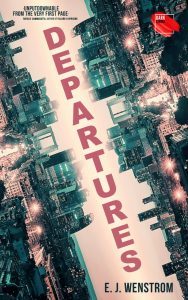
 E. J. Wenstrom believes in complicated heroes, horrifying monsters, purple hair dye and standing to the right on escalators so the left side can walk. She writes dark speculative fiction for adults and teens, including her new release, a young adult dystopian novel titled Departures (August 10, 2021). When she isn’t writing fiction, E. J. Wenstrom is a regular contributor to DIY MFA and BookRiot, and co-hosts the Fantasy+Girl Podcast. Learn more at her website.
E. J. Wenstrom believes in complicated heroes, horrifying monsters, purple hair dye and standing to the right on escalators so the left side can walk. She writes dark speculative fiction for adults and teens, including her new release, a young adult dystopian novel titled Departures (August 10, 2021). When she isn’t writing fiction, E. J. Wenstrom is a regular contributor to DIY MFA and BookRiot, and co-hosts the Fantasy+Girl Podcast. Learn more at her website.
3 Steps for a Great Small Press Experience by @EJWenstrom :
Click To Tweet
Photo credit: jafsegal (Thanks for the 5 million views) on Visualhunt
The post What I’ve Learned from Six Years in Small Press Publishing appeared first on Elizabeth Spann Craig.
August 14, 2021
Twitterific Writing Links
by Elizabeth S. Craig, @elizabethscraig
Twitterific writing links are fed into the Writer’s Knowledge Base search engine (developed by writer and software engineer Mike Fleming) which has over 61,000 free articles on writing related topics. It’s the search engine for writers. While you're there, check out the Writer's Digest award-winning Hiveword novel organizer.
Have you visited the WKB lately? Check out the new redesign where you can browse by category, and sign up for free writing articles, on topics you choose, delivered to your email inbox! Sign up for the Hiveword newsletter here.
Business / MiscellaneousHow Editors Edit with Kristina Stanley (Podcast): @sacha_blackWhat is a soft book launch? @sandrabeckwithBusiness Musings: TV/Film (Fear-Based Decision-Making) @KristineRuschHow Much Do Authors Earn? Here’s the Answer No One Likes. @JaneFriedmanTips for Increasing Your Income as a Writer: “Everything I've Learned about Being a Professional Writer in One Post”: @TheLincolnHow to Pitch a Magazine or Freelance Gig: @hopeclarkHow To Edit Your Book And The Different Kinds Of Professional Editors: @NYBookEditors @thecreativepennConferences and Events / MiscellaneousEngland’s South Asian Desiblitz Literature Festival Plans a Hybrid Edition: @Porter_Anderson @pubperspectivesHow to Get the Most Value From an Online Writing Conference: @EdieMelson5 Tips for Writing Conference Newbies: @moniqueh_author @TheRyanLanzCreativity and Inspiration / Inspiration / QuotesA Writing Tip from Steinbeck to Stay Motivated: by Nick GarlickCreativity and Inspiration / Inspiration / Reading as WritersCrime Fiction: Innocent Decisions with Far-Reaching Consequences: @MargotKinberg5 Books That Take Friendship as Seriously as Romance: @wirewalking @tordotcom4 Novels That Honor Healthcare Workers, Caregivers and First Responders: @WF_Writers @BookTrib7 Must Read YA Black Girl Magic Books: @LiselleSambury @tordotcomWhy Reading More Shakespeare is a Good Idea: by Jessica Barksdale Inclán @WritersDigestThe StoryGraph Review: Is It Worth Replacing Goodreads? @ChrisMArnone @BookRiot10 Stories About Hunger and Hustle in the Restaurant Industry: @_karentucker_ @ElectricLitCreativity and Inspiration / Productivity / Fitting in WritingTop 3 Useful Tips For Getting Your Book Written: @Bang2writeThe Secret to Finding More Time to Write: @jessicastrawser @CareerAuthorsCreativity and Inspiration / Productivity / Writing QuicklyWriting speed? 2,500 words per hour: @pubcoachCreativity and Inspiration / Writing LifeCan The Writing Gene Be Passed Down Through DNA? @JanSikes3 @StoryEmpireA Prayer to the Muse: @SPressfieldBecoming a Full-Time Writer with Shannon Anderson (Video): @Write4KidsTrust, Threat, and Truth: A Journey Through the Craft of Writing (Podcast): @everydog @DIYMFAHow Writing a Novel Is Like Decrypting a Cipher: @ponyonabalcony @lithubThe other side of creating is sharing: @DanBlankTypes of Writers: Feeler and Thinker: @gmplano @StoryEmpireHow to become an author (and how to stay one): @Roz_Morris @misterwakefieldReady To Break Rules? One Word Will Tell: @ozzywoodWhy 1 Author Writes and Tips on Staying Motivated: @adeleparks @thenovelryDeadly Problems for Writers: Money: @DeanWesleySmithWrite Like You’re in Love, Edit Like You’re in Charge: @jamesscottbell @killzoneauthorsGenres / Fantasy7 Tips to Having Characters Power Up: @cyallowitzBuilding a Fantasy Army — Environment and Society: by Toni Šušnjar @mythicscribes“How Can I Keep Luck Charms From Breaking My Story?” by Chris Winkle @mythcreantsGenres / HorrorExploring the Roots of Folk Horror: @readsvicarious @puzzleboxhorrorGenres / Literary FictionLiterature versus the world: @SHalvatzisGenres / MysteryWell-Crafted Lines in Crime Fiction: @MargotKinbergCrime Fiction: Links Between a Current Case and a Past One: @MargotKinbergGenres / ScreenwritingScene Description Spotlight: “Titanic”: @GoIntoTheStoryPromo / Book ReviewsHow to Handle Critiques and Negative Reviews: @KiingoCreativePromo / Connecting with ReadersHow to Get Inside a Reader’s Head (and Write a Book Readers Will Buy): @LisaTenerDo You Want to Confidently Imagine Your Ideal Reader? @CindyHeathWrite @TheIWSGPromo / MiscellaneousWork More Sales into Your End of Summer Book Marketing Plan: @Bookgal3 Things You Need to Know to Market Your Writing: @SueBEdwards @womenonwritingPublishing / MiscellaneousGame to Book: ‘Terraforming Mars’ Spins Off a Novel: @Porter_Anderson @AconyteBooks @pubperspectivesStyle Sheets, Style Guides, and Writing Style: Everything You Wanted to Know but Were Afraid to Ask: @RuthHarrisBooksPublishing / News / AmazonAmazon Book Marketing: A+ Content Now Available to Self-Published Authors: @BookgalPublishing / News / DataNPD Books Sees the US Print Market Up in July, ‘Momentum Slowing': @Porter_Anderson @pubperspectivesNPD Cites Strong Outlook for US Children's Nonfiction: @Porter_Anderson @npdgroupPublishing / News / International PublishingStorytel Passes 1 Million Nordic Subscribers, Streaming Sales Up: @Porter_Anderson @pubperspectivesBelarus One Year After the Election: Writers, Translators, Journalists Speak Out: @Porter_Anderson @pubperspectivesPublishing / Options / Traditional Publishing / QueryingDon’t let voice interfere with a query’s readability (query critique): @NathanBransfordPublishing / Options / Traditional Publishing / RejectionsMultiple Rejections in a Single Day?! Why & What To Do: @Aeryn_RudelPublishing / Process / Book DesignWorking With a Designer? Here’s How to Structure Your Copy in Google Docs: @AJLWritings @thewritelifeWriting Craft / Characters / DevelopmentAlexander Payne on appealing characters vs. sympathetic characters: @GoIntoTheStoryWriting Craft / ConflictHow To Use Viewpoint As A Source Of Conflict: @MiaJouBotha @Writers_WriteWriting Craft / DialogueThe Power Of Dialogue In Love Stories: @AnthonyEhlers @Writers_WriteWriting Craft / Lessons from Books and FilmFive Stories That Suffer From Muddled Atmosphere: by Oren Ashkenazi @mythcreantsPage One: “Milk” (2008): @GoIntoTheStoryWriting Craft / MiscellaneousReaction Versus Goal in Plot: by Marilynn ByerlyWriting Rising Action: @LindasclareHow to Write Like Hemingway – 12 Pieces of Writing Wisdom: @AstrohausBringing The Workplace Alive In Fiction: @Annecdotist @WomenWriters5 Tips to Ace the Art of Retelling: by Disha Walia @DIYMFASubtle Things Your Manipulative Character Does To Get What They Want: @10minnovelistWriting Craft / Punctuation and GrammarQuotes and Paragraphs: @harmony_kent @StoryEmpireWriting Craft / RevisionRelocate your darlings: @austinkleonRight-Brained Revisers: @MichalskiLiz @WriterUnboxedWriting Craft / ScenesDon’t start a scene without these four essential elements: @NathanBransfordElements of Scene Beginnings: Scene Question: from Writes with ToolsWriting Craft / Settings and DescriptionUse the Setting as a Character: @kathycowleyHow Fiction Writers Can Use Sensory Detail to Set Mood: @LiveWriteThriveUncategorizedMary Wollstonecraft is a Double Taurus, Or: How an Astrologer Helped Unstick My Novel: @samanthaswriter @lithub
The Top Writing Links From Last Week Are On Twitterific:
Click To Tweet
The post Twitterific Writing Links appeared first on Elizabeth Spann Craig.
August 8, 2021
Increasing Your Income as a Writer
by Elizabeth S. Craig, @elizabethscraig
It can be tough, financially, to be a writer, especially if you're just starting out. There are costs associated with self-publishing (covers and editing, in particular) and earning that money back usually takes a while.
Often I'll read posts in forums from writers who are putting everything they have into their one book and are getting more and more frustrated by their lack of sales or lack of reviews. Here are a few things for these writers to consider:
5 Tips for Increasing Your Income as a WriterConsider “going wide”: It's sometimes recommended for writers to be part of KDP Select if they have only one title. But if you're looking for a career in writing, I'd recommend going wide to reach a broader audience. List your books on Apple, Kobo, and Nook. Have them available in libraries through Overdrive. Make your books available in foreign markets and subscription services through distributors like PublishDrive, StreetLib, Draft2Digital, and Smashwords.
Expand into multiple formats: I see a good number of writers who'll only have their books available in digital format (or, occasionally, the other way around…only in print). Instead, make sure your book is available to readers however they like to read: whether it's on their phone, in print, or in audio. Use both KDP Print and IngramSpark to maximize your international reach for print.
Expand into multiple languages: By listing your book as available to translate on a platform like Babelcube, your book has the opportunity to be discovered by readers in other countries.
Keep writing books. I think this is the most important of the five tips. When you have only one book, your whole life revolves around the book. You'll spend too much time worrying about switching out the cover or changing design elements or finding reviewers. If you continue writing books, not only does your perspective change, you also end up with more books to sell and more potential income.
Write in series: This falls in the same category as the tip above. When you write in series, not only does it please readers who've invested time in learning about your characters and your story's world and would like to apply that knowledge to more stories, but it makes writing a book quicker and easier for you since you've already developed most of the story's key elements.
Do you have any tips for increasing your writing income? What have I left out?
5 Tips for Increasing Your Income as a Writer:
Click To Tweet
Photo on Visualhunt
The post Increasing Your Income as a Writer appeared first on Elizabeth Spann Craig.
August 7, 2021
Twitterific Writing Links
by Elizabeth S. Craig, @elizabethscraig
Twitterific writing links are fed into the Writer’s Knowledge Base search engine (developed by writer and software engineer Mike Fleming) which has over 61,000 free articles on writing related topics. It’s the search engine for writers. While you're there, check out the Writer's Digest award-winning Hiveword novel organizer.
Have you visited the WKB lately? Check out the new redesign where you can browse by category, and sign up for free writing articles, on topics you choose, delivered to your email inbox! Sign up for the Hiveword newsletter here.
Business / Miscellaneous“How I Used Google Calendar to Double My Earnings as a Freelance Writer”: @danasitarSix Email (and Snail Mail) Web Scams to Avoid: @inkbitspixelsYour Author Photo: by Juliet Marillier @WriterUnboxedDiscovery Writing And Sustaining A Long-Term Writing Career: @PatriciaMcLinn @thecreativepennSelf-publishing News: Crime Writers Association Opens Its Doors to Indie Authors: @agnieszkasshoes @IndieAuthorALLIWhat to Do if Amazon KDP Asks You to Prove Your Publishing Rights: @sacha_black @IndieAuthorALLIStay with an agent, or go? @Janet_ReidConferences and Events / MiscellaneousUS' National Book Awards Schedule a ‘Primarily In-Person' Ceremony: @Porter_Anderson @pubperspectivesWith Peter Florence's Resignation, Hay Festival Seeks New Leadership: @Porter_Anderson @pubperspectivesNewberry Library Announces a $25,000 Chicago-Specific Book Award: @Porter_Anderson @pubperspectivesGoldsboro Books' ‘Glass Bell Award' Announces Its 2021 Shortlist: @Porter_Anderson @pubperspectivesThe Windham-Campbell Prizes 2021: A Nine-Week Series of Salon Events: @Porter_Anderson @pubperspectivesCreativity and Inspiration / First NovelsThe Most Important Thing for a Beginning Writer: @Peter_Rey_Creativity and Inspiration / Inspiration7 Ways to Quickly Increase Your Creativity: @JonAuthor @LiveWriteThriveThe Poets That Helped a Young Bob Dylan Find His Voice: by Clinton Heylin @lithubCreativity and Inspiration / Inspiration / Reading as WritersAdventurous Characters in Crime Fiction: @MargotKinberg7 Uninhabitable Houses in Fiction: @ClaireFuller2 @ElectricLitFive SFF Novels Featuring Men Who Don’t Give Up Easily: @jamesdnicoll @tordotcomMisjudging Others as an Element in Crime Fiction: @MargotKinberg5 Great Debut Memoirs to Listen to While You’re Traveling: @JamesTateHill @lithubExploring the Afterlife in Fantasy: Crossing the Threshold: @cloudy_vision @tordotcomCreativity and Inspiration / Writing LifeWhen Good Advice Is a Trojan Horse: @AnneJanzerThere's Writing and Then There's Writing About Writing: by Barbara Linn Probst @WriterUnboxedWhy Do Creative People Burn Out? @MegDowell @TheRyanLanzWrite First Edit Later: Stop Editing As You Write. Use These Tips: @kwidenhouse“Why I’m Missing My Commute”: @casey_dembowski @WomenWritersWriting (and living) advice from Anne Lamott: @pubcoachEvery Hack Needs an Idea File: @BillFerris @WriterUnboxed6 Lessons of Writing for Novelists: @Wendy_Wax @WritersDigestWhy You Should Build Mentoring Relationships with Other Writers: @KelsieEngenAdvice for the Demoralized Writer: @jamesscottbell @killzoneauthorsIt takes a lot of manure to grow a few good roses: @AlanBaxterHow to write when it’s too damn hot: @pubcoachWriting Two at a Time: @annehawkinson @FloridaWriters1Use Your Writer’s Intuition to Fix a Problem: @LauraHighcove @DIYMFAOn the delightfully odd homes of Margaret Wise Brown: @prepartynap @lithubGenres / FantasyFaith-Based Fantasy: by Lynea Youmans @mythicscribesGenres / HorrorWhy the World Needs More Diversity in Black Horror: by Marcus Shorter @BDisgustingGenres / MemoirTo Write a Better Memoir, Learn This F-Word: @LisaEllisonsPen @JaneFriedmanGenres / PoetryAn A to Z Guide to Poetry and Poetic Terminology: @veronikellymars @BookRiotGenres / ScreenwritingHow to Use Dashes and Ellipses in a Screenplay: @GoIntoTheStoryGenres / Short StoriesHow Long Is A Short Story? [Comprehensive Word Count Guide]: @DaveChessonPromo / MiscellaneousRelease Checklist For Writers: Promo / NewslettersThe Ultimate Guide to Reader Magnets for Indie Authors: @IndieAuthorALLIPromo / Platforms5 Logo Design Tips to Improve Personal Branding for Authors: @KimberleyGrabasHow to Build an Effective Author Platform: @kristen_kiefferPublishing / MiscellaneousHow (and Why) to Write a Book Dedication: @claytonnoblit @WrittenWordMSix Tips for an Outstanding Literary Journal Submission: by Meredith Allard @annerallenRichard Charkin in La France Profonde: A Market Assessment: @rcharkin @pubperspectivesRemembering the UK Publishing Industry's David Whitaker, ISBN Pioneer: @rogertagholm @Porter_Anderson @pubperspectivesRights Roundup: Starting the Frankfurt Roll Call: @Porter_Anderson @pubperspectivesPublishing / News / AmazonAmazon A+ Content: What is it and How to Use it: @DaveChessonPublishing / News / International PublishingAuthors, Illustrators, Translators Pressure the UK Government on Copyright: @Porter_Anderson @pubperspectivesChina Bestsellers: June’s List Welcomes Neil Gaiman: @Porter_Anderson @pubperspectivesCanadian Publishers: Supreme Court Copyright Ruling Is ‘Discouraging’: @Porter_Anderson @pubperspectivesPandemic Weighs on China's Book Sales in First Half of 2021: @Porter_Anderson @pubperspectivesPublishing / Options / Self-PublishingDebunking Myths About Self-Publishing and Indie Authors: @OrnaRoss @thecreativepenn @IndieAuthorALLIPublishing / Options / Traditional Publishing / QueryingWhen to Resubmit Your Query Letter: @BookEndsJessica @bookendslitPublishing / Process / FormattingHow to Hire a Book Formatter: @DaveChessonWriting Craft / BeginningsAgent Perspectives on First Pages: by Clare Langley-Hawthorne @killzoneauthorsWriting Craft / Characters / ArcThe Obsolescence of The Hero's Journey: @GabrielHart77 @LitReactorWriting Craft / Characters / DevelopmentFive Tips For Writing Character Driven Fiction: @helenefermontArchetypal Character Arcs: The Flat Archetype of the Child: @KMWeilandMaking Sense Out of Character Wants and Needs: @Janice_HardySympathetic Character: 10 Writing Techniques That Make Readers Care: by Joslyn Chase @write_practiceWriting Craft / Characters / Supporting CharactersSecondary Characters' Purposes: @CarriePadgett @A3writersWriting Craft / Lessons from Books and FilmScene Description Spotlight: “Butch Cassidy and the Sundance Kid”: @GoIntoTheStoryGreat Scene: “Wonder Woman”: @GoIntoTheStorySix Stories With Weak Romantic Attraction: by Oren Ashkenazi @mythcreantsGreat Scene: “Rocky”: @GoIntoTheStoryPage One: “Marathon Man” (1976): @GoIntoTheStoryWriting Craft / Literary DevicesBreathe Life into Your Words with Metaphor: @KiingoCreativeWriting Craft / MiscellaneousWhich Story Structure Is Right for Your Novel? by Savannah CordovaHow to avoid repeating ‘I’ in first-person writing: @LouiseHarnbyHow To Use Tabletop Games In Fiction Writing: @officialajc @Writers_WritePlot-Driven vs. Character-Driven Fiction: @MaeClair1 @StoryEmpireBringing Your Stories to Life with Nonverbals: @FoxPrintEdWriting for the Ideal Reader: @richardgthomas3 @LitReactorWriting Craft / Pre-Writing / ResearchThe Best Researchers Make the Best Writers: @craigvonbuseck @EdieMelsonWriting Research: Do You Delve or Dive? And Helpful Research Sites: @AneMulligan @EdieMelsonWriting Craft / Revisions / CritiquesQuestions to Ask Your Beta Readers to Help Them Help You: @ZoeMMcCarthyWriting Craft / ScenesElements of Scene Beginnings: Goal: from Writes With ToolsWriting Craft / Scenes / ConflictProtagonist v. Nemesis: Keys to Conflict: @GoIntoTheStoryWriting Craft / Settings and DescriptionHow to “Show” Your Protagonist Is Stressed: @10minnovelistFour Key Ways to Practice Writing Vivid Descriptions: by Jodi Clark @KingdomPenMagWriting Craft / TensionWriting Tension in Sequel Scenes: @LindasclareWriting Craft / Word CraftingThe Power of Quirky-Smirky Assonance and Alluring Alliteration: @MargieLawsonWriting Craft / World-BuildingWeaving Real-Life Environmental Issues into Your Fictional World: @maryalicemonroe @CareerAuthorsHow Do I Include Diverse People in a Fantasy World With Modern Technology? by Chris Winkle @mythcreants
The Top Writing Links From Last Week Are On Twitterific:
Click To Tweet
The post Twitterific Writing Links appeared first on Elizabeth Spann Craig.
August 1, 2021
Release Checklist
by Elizabeth Spann Craig, @elizabethscraig
I promised that I'd share an updated version of a checklist I use for my release days. The idea is to make sure that I've covered everything so I don't wake up in the middle of the night in a cold sweat, ha.
Sometimes the list changes a little bit, depending on what sort of promo I'm running. I've never been a fan of doing promo, but I'm trying to do more ads and things now.
Production:Decide on a launch date.
Update my back matter (I keep it in a separate document) and copy-paste it into the manuscript.
Send the document to beta readers.
Send it to my editors.
Once edited, send the story to my ARC readers (I share through Prolific Works, although I hear good things about BookFunnel).
Register my ISBNs with Bowker for each format of the book.
Begin loading metadata into all the different retail and distributor sites. Be consistent with the metadata.
Upload editorial reviews for the series on Amazon through Author Central.
Set up for preorder once I feel good about the timing of my edits.
PromoUpdate my website to announce the upcoming release and what I'll be working on next.
Make sure Goodreads has linked the new book to my series and name.
Check that Amazon has added my book to the series list and that it’s linked to my Author Central page.
Write a personal author’s note for the back-matter section of the book and for that section on the Amazon product page that we access through Author Central (From the Author).
Make sure my newsletter will be ready to go to readers on release day.
Put the first chapter up on Facebook as a sample.
Run a Goodreads giveaway of the first book of the series (or the new book, depending)
Run pricing promos on the first couple of books in the series.
Create images to run on Facebook and Instagram on the day of the release and schedule the postings on Hootsuite.
Other BusinessSend digital copies (or print) to people who've helped bring the book to publication in some way.
Order print copies for myself.
Update my website after the book publishes. Make sure the printable Google doc of all my books is updated.
***
What have I left out? Does this look a lot like your own list for a release?
Checklist for a Release:
Click To Tweet
Photo on Visualhunt
The post Release Checklist appeared first on Elizabeth Spann Craig.
July 31, 2021
Twitterific Writing Links
by Elizabeth S. Craig, @elizabethscraig
Twitterific writing links are fed into the Writer’s Knowledge Base search engine (developed by writer and software engineer Mike Fleming) which has over 61,000 free articles on writing related topics. It’s the search engine for writers. While you're there, check out the Writer's Digest award-winning Hiveword novel organizer.
Have you visited the WKB lately? Check out the new redesign where you can browse by category, and sign up for free writing articles, on topics you choose, delivered to your email inbox! Sign up for the Hiveword newsletter here.
News:Here's a new book for readers and writers: Book Therapy by Jordi Nadal. An excerpt from the book's forward:
…book therapy must be distinguished from all other kinds of therapy. It does not diagnose, and it cannot promise a cure. Out of the two million books published each year in the world, many have no other ambition than to put the reader to sleep, or to amuse, or to instruct, or to help pass the time which would otherwise be devoted to fighting against boredom. For me, book therapy means the experience of meeting a stranger. A book is an opportunity to have a conversation with a stranger, a silent conversation which may sometimes continue for years. And though some authors who write many books may sometimes be repeating themselves, others may be evolving, expanding their horizons and discovering new hopes, so that each new book may have been written by a slightly different person. Book Therapy is an adventure into the unknown. ~Theodore Zeldin, Oxford, March 2021
This a non-profit venture, and royalties from the book are being donated to Give A Book a charity that ‘promotes the pleasure of reading in the hardest places’, working mostly with prisons and disadvantaged children.
Also: Free Workbook from Author John Kerr:John Kerr, who's been a guest on this blog, has a new story planning resource for writers: a download, free with a newsletter subscription. “The Story Writing Workbook is a 123-page writing handbook that will take you through each of the 12 stages of the hero’s journey. Each chapter covers a single phase of the hero’s journey, exploring the step in-depth and providing mentor text examples. Also included are specific goals for your writing.” For more information, head to: https://artofnarrative.com/ , download a chapter for free, or purchase with a 20% discount when using the code “twenty” at checkout.
Business / MiscellaneousAssessing Your Writing Career: @WriteNowCoach @TheIWSGPodcasting as an Indie Author: @IndieAuthorALLIWhat’s your editorial brand palette and why does it matter? @LouiseHarnbyTypes of Editing For Books: What Are They and Which Do You Need? @DaveChessonConferences and Events / MiscellaneousLondon’s Booker Prize for Fiction Names Its 2021 Longlist: @Porter_Anderson @pubperspectivesThoughts on Writing Classes at a Conference: @tickledpinktam @EdieMelsonCreativity and Inspiration / First NovelsWhat You Need to Know to Write Your Novel: @HankPRyan @CareerAuthorsCreativity and Inspiration / InspirationStory Inspiration: It's Deep in Our Bones: @harriet_tyce @thenovelryUsing Your Own Dreams in Fiction: @jamesscottbellStephen King’s “On Writing”: Everything is Copy: @GoIntoTheStoryCreativity and Inspiration / Inspiration / Reading as Writers7 Novels About Very Dysfunctional Families: @StaceySwann @ElectricLit“Why I am deleting Goodreads and maybe you should, too”: by Kat Smith @GuardianBooksCrime Fiction With Lessons or Morals: @MargotKinberg7 Novels About Running Away From the Past: by Ailsa McFarlane @ElectricLitCreativity and Inspiration / Productivity / Writing Quickly7 Tips For Producing More Words: @jamesscottbell @killzoneauthorsCreativity and Inspiration / Writing Life“My Ever-Elusive Muse or Writing When I Don’t Want To”: by RejectomancyChange Your Plan: @10minnovelistHow Being Grateful Helps Us Be Better Writers: @bethvogt @EdieMelsonThe Tactile Experience of Writing: @GoIntoTheStoryMaking it in the Middle: The Mulish March of a Mid-Lister: @Shutta @FloridaWriters1Stephen King’s “On Writing”: Writing With the Door Closed. And Then, Writing With it Open: @GoIntoTheStory @StephenKingWriting With Others: @annkroeker“How My Women’s Writing Group Vents Together Instead of Tearing Work to Shreds”: @writingmyth @WomenWritersGenres / DystopianDeath in the Apocalypse: by Marcus Martin @MandSMagazineGenres / FantasyFive Baffling Tech Explanations in Spec Fic: by Oren Ashkenazi @mythcreantsFive Fascinating Monsters From Speculative Fiction: by Oren Ashkenazi @mythcreantsGenres / MiscellaneousThe Structure of Genre: Analyzing story structure by genre: @woodwardkarenGenres / MysteryThe Five Things You Need in Writing a Mystery Novel: @MelodieCampbell @annerallenCrime Fiction: When Characters Put Differences Aside and Work Together: @MargotKinbergIn Psychological Thrillers, It's All About the ‘Wife': @KairaRouda @CrimeReadsCozy Writing: The Means to Murder: by Jamie LaneCozies: The Opportunity for Murder: by Jamie LaneGenres / ScreenwritingUP vs. SOUL: What Theme is Driving Your Writing? @thejkstudioPage One: “Sound of Metal (2019): @GoIntoTheStoryScreenwriting Resource: Movie Script Scene-By-Scene Breakdowns: @GoIntoTheStoryGenres / Short StoriesLester Dent's Short Story Structure: 3 Elements of a Great Story Opening: @woodwardkaren“10 Reasons Why I Love Writing Flash”: @authorsudhaPromo / Connecting with ReadersWriting for Readers with Dyslexia: @JeanettetheWrtr @DIYMFAPromo / MiscellaneousWriter @hanque99 on Promo Co-Ops: Unique Author Branding and Content Ideas Using August Observances: @BookgalPromo / Social Media TipsInstagram Tips for Writers: @pathatttime @TheIWSGPromo / Websites3 Simple Tips For Writing With SEO Keywords: @ashleygainerPublishing / MiscellaneousHow Will Your Story Rate in a Contest? Evaluation Criteria: @JodieRennerEdUS-Based Open Road Acquires UK Publisher Bloodhound Books: @Porter_Anderson @pubperspectivesInterview: Dr. Leana Wen on Public Health and Personal Impact in ‘Lifelines’: @Porter_Anderson @pubperspectivesPublishing / News / International PublishingIPA Cheers First 100 Signatories to the SDG Publishers Compact: @Porter_Anderson @IntPublishers @pubperspectivesPublishing / Options / Traditional Publishing / QueryingHow to Find Compelling Comps for Your Book: @starwuerdemann @JaneFriedmanPublishing / Process / Book DesignFive Mistakes to Make When Designing Your Book Cover: @inkbitspixelsPublishing / Process / Services to AvoidFriends Don’t Let Friends Fall for Publishing Scams: Look for These Tell-Tale Signs: @annerallenWriting Craft / Characters / ArcThe Heroine’s Journey: @gailcarriger @thecreativepennWriting Craft / Characters / DevelopmentRelationship Thesaurus Entry: Best Friends: @beccapuglisiHow to Develop a Character with Psychosis: by Marie Miguel @HorrorTreeThe People Who Shape Story Worlds: @KiingoCreativeBuilding Great Characters: A Guide for Writers: @mindofkyleam @ProWritingAidThe Nemesis as the Protagonist’s ‘Shadow’: @GoIntoTheStoryHow to Make Each Character Unique: @KiingoCreativeHow to Write a Sidekick: @stacitroilo @StoryEmpireWriting Craft / Characters / ProtagonistsQuestions To Ask Your Protagonist You May Not Have Thought Of: @10minnovelistWriting Craft / ConflictDramatizing Inner Conflict: @KiingoCreativeThree things you must know for any fight scene: from Cataclysmic Writer3 Effective Ways to Improve Your Fight Scene: by Grace A. Johnson @KingdomPenMagWriting Craft / DialogueHow to declutter your dialogue: @LouiseHarnbyWriting Craft / DraftsWriting a First Draft: @EmyliaHall @thenovelryWriting Craft / Lessons from Books and FilmScene Description Spotlight: “Unforgiven”: @GoIntoTheStoryWhat Do We Mean When We Say a Novel is Without Plot? by Rónán Hession @lithubPage One: “Tenet” (2020): @GoIntoTheStoryPage One: “Little Women” (2019): @GoIntoTheStoryPage One: “Knives Out” (2019): @GoIntoTheStoryPage One: “Knocked Up” (2007): @GoIntoTheStoryWriting Craft / MiscellaneousChristian Fiction: Using Ensemble Casts to Write Without Preaching: @acw_author @EdieMelsonIncorporating Social Issues Into Your Manuscript: @AuthorKLBurd @WriterUnboxedHow to Create Atmosphere: @AJHumpageWriting Craft / Pre-Writing / NamingWhat Should I Avoid While Creating Names in Fantasy Cultures? by Chris Winkle @mythcreantsWriting Craft / Pre-Writing / PlottingHow Each of the 5 Major Plot Points Turn a Story: @SeptCFawkesWriting Craft / Punctuation and GrammarPunctuating Questions: @GrammarGirlWriting Craft / ScenesThe Punch at the End of Your Novel Scenes: @LiveWriteThriveWriting Craft / Scenes / ConflictKick Your Story Up a Notch by Knowing Your Character’s Conflict Style: @KelseyAllagood @WriterUnboxedWriting Craft / Settings and DescriptionThe Dos and Don'ts of Writing Immersive Description: by Chelsea Hindle @KingdomPenMagWriting Craft / TropesStory Tropes Can Be Our Friends: @VaughnRoycroft @WriterUnboxedWriting Craft / Word CraftingThe Five-Car Metaphor Pile-Up: @TheLincolnWriting Craft / World-BuildingHow to Build a Fantasy Economy: by Victor Salinas @TheRyanLanzUncategorizedWhat makes a good foreword? @pubcoach
The Top Writing Links From Last Week Are On Twitterific:
Click To Tweet
The post Twitterific Writing Links appeared first on Elizabeth Spann Craig.
July 25, 2021
Marketing Co-op Ventures
by Hank Quense, @hanque99
Book marketing is hard. This is especially true if you book was published by an indie press house or if you self-published it. In these instances all marketing responsibilities react on you and you alone.
This article discusses a way to change that last statement.
One solution to combating the loneliness of your marketing efforts is to organize an author marketing co-operative venture. Getting like-minded authors to share the marketing load can greatly increase everyone’s reach as each of you join forces to promote each others books.
Once the group comes together, there are a number of joint activities that can be shared to effectively promote the books.
Social media posts:
One easy way to promote each other is to link up on social media sites. Whenever a member of the group writes a post about a new article, event, or a new book review, each member likes the post and shares it or retweets it. Liking it is nice, but sharing greatly expands the number of people who will see the post. However, the posting member must make the post “public.” If the post is private, it can’t be shared.
Caution must be used to ensure that personal posts aren’t shared. Too much personal sharing may be views as spam by the contacts. Only “professional” material should be candidates for sharing/retweeting.
Author Interviews:
Members can interview each other and post the interviews as blog posts (to be shared or retweeted by other members). Both members involved in the interview can get together via email or a chat app to develop a series of questions to be used during the interview.
Video interviews:
This type of interview can be interactive if it’s held during a zoom meeting that the public is invited to attend. This has the added advantage of allowing the pubic to ask questions which greatly increases the interest in the meeting. The participants should work together to develop the interview questions, the video agenda and then promote the meeting.
If the interview is recorded, the video can be posted on websites and promoted using the social media sites.
Author discussions:
In this activity, a few members get together to discuss a topic of mutual interest. The interview can be text based and published as a blog post or it can be a recorded as a live video meeting.
Book launch street team:
The group can act as street team for books the group launches. This can include a number of activities such as: beta readers, book reviews, social media promotions and other book launch activities.
Group YouTube channel:
If the members produce a few videos that are of interest to others, it may be beneficial to start a video channel on YouTube or Vimeo. If one member initiates the channel on YouTube, other members can upload videos to the channel. This means the channel’s owner doesn’t have to do all the work. If each member writes blog posts promote the videos on the channel, the number of views will increase. The channel’s URL can also be added to the members email sig file, further promoting the videos.
Group website:
If the co-op is to be effective there should be a common web place to host relevant material and to serve as a clearing house for comments and discussions. For this type of activity I prefer Infinity as the website to share. Infinity is similar to Trello in many ways it has additional features I like and use.
Book reviews:
Naturally, the members will review each others' books, to at least rate them.
Let’s look at this concept graphically:
Conclusions:
To me, it seems that an author co-op can be quite beneficial to all members and can greatly increase the marketing reach of each. The creativity of the group is the only limiting factor on what activities the group actually works on.
However, the caveat to all this is that the members have to share the work load. If member X isn’t willing to help out with the promotional activities while expecting the others to promote member X’s books, it can lead to anger and the disbanding of the co-op.
Writer @hanque99 on Promo Co-Ops:
Click To Tweet

Hank Quense’s website Writers & Authors Resource Center provides material relating to fiction writing, self-publishing and book marketing.
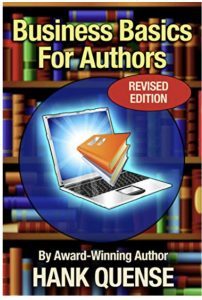
Photo credit: jcorrius on Visualhunt
The post Marketing Co-op Ventures appeared first on Elizabeth Spann Craig.
July 24, 2021
Twitterific Writing Links
by Elizabeth S. Craig, @elizabethscraig
Twitterific writing links are fed into the Writer’s Knowledge Base search engine (developed by writer and software engineer Mike Fleming) which has over 61,000 free articles on writing related topics. It’s the search engine for writers. While you're there, check out the Writer's Digest award-winning Hiveword novel organizer.
Have you visited the WKB lately? Check out the new redesign where you can browse by category, and sign up for free writing articles, on topics you choose, delivered to your email inbox! Sign up for the Hiveword newsletter here.
The Top Writing Links From Last Week Are On Twitterific:
Click To Tweet
The post Twitterific Writing Links appeared first on Elizabeth Spann Craig.

